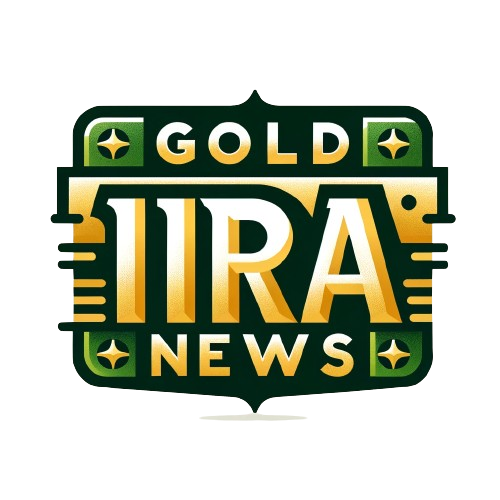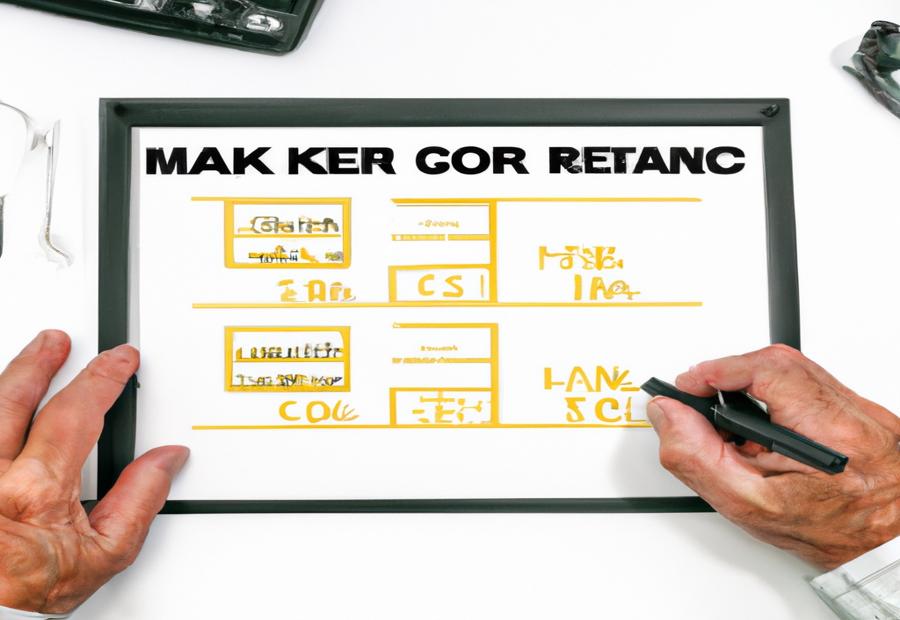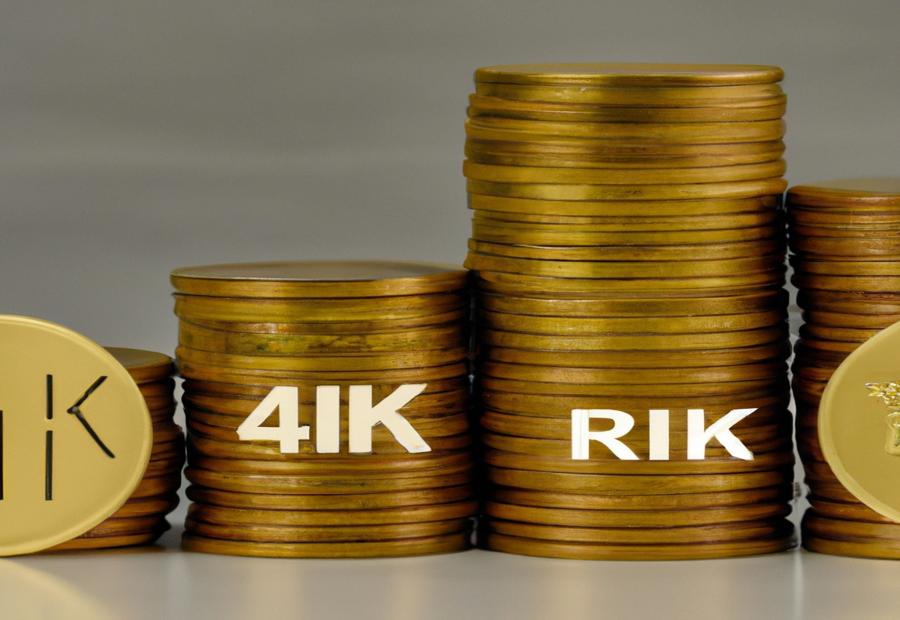Key Takeaway:
- 401K rollover to IRA after retirement offers tax advantages and investment options, allowing individuals to potentially grow their retirement savings.
- Flexibility and diversification are key benefits of 401K rollover to IRA after retirement, as individuals have the freedom to choose from a wider range of investment opportunities.
- Simplified account management is another advantage, as consolidating retirement savings into a single IRA can make it easier to track and manage funds.
- 401K rollover to IRA after retirement also offers the potential for higher returns compared to leaving funds in a 401K, as individuals have more control over their investment decisions.
Related Post:
Introduction
Photo Credits: Ecopolitology.Org by Gabriel Brown
After retirement, it is crucial to understand the importance of 401K rollover to an IRA. This process provides various financial advantages and ensures a secure future for retirees. Exploring the benefits of this rollover, such as tax advantages and investment flexibility, will help retirees make informed decisions regarding their retirement savings. With careful consideration of the right retirement options, individuals can effectively navigate their post-work years with confidence and peace of mind.
Importance of 401K Rollover to IRA After Retirement
Rolling over a 401K to an Individual Retirement Account (IRA) is crucial after retirement. It offers various benefits, like tax advantages, investment flexibility, simplified account management, and potential for higher returns. Furthermore, considering the financial reasons, impact of fees and investment options, creditor protection, withdrawal flexibility, role of company stock in a 401K, and loans or cash distributions are essential.
The importance of 401K rollover to IRA after retirement is clear. It provides individuals with tax advantages and expanded investment options. Rolling over funds from a 401K to an IRA can potentially decrease tax liabilities. Plus, retirees have a wider range of investments that align with their financial goals.
The flexibility of an IRA is another major benefit. People can choose their asset allocation and diversify investments according to their risk tolerance and objectives. This helps manage risk and potentially increase returns.
Simplified account management is advantageous when rolling over from 401K to IRA after retirement. Consolidating funds into a single IRA account simplifies tasks such as tracking investments, monitoring performance, and making contributions or withdrawals. This saves time and effort for retirees who want to focus on enjoying their retirement.
Finally, there is the potential for higher returns when rolling over from a 401K to an IRA. Carefully selecting investments in an IRA that match one’s risk tolerance and long-term objectives may help retirees achieve higher growth than traditional employer-sponsored retirement plans like 401Ks.
Understanding the MECE Framework: Mutually Exclusive and Collectively Exhaustive Categories
Photo Credits: Ecopolitology.Org by Paul Hill
The MECE framework is crucial for categorization. For retirement planning, it applies to rolling over a 401K to an IRA. This falls under retirement planning strategies.
Mutually exclusive means each category is distinct. Rolling over a 401K to an IRA stands alone and has no overlap with other strategies.
Collectively exhaustive covers all options. In our case, it means the 401K rollover encompasses all relevant possibilities for retirement planning post-retirement.
Understand the MECE framework to make informed decisions. Assess the suitability of rolling over a 401K as a standalone strategy for maximizing retirement funds. Ignoring it may result in missed opportunities and suboptimal outcomes during retirement. Take the initiative and make sure you understand the MECE framework.
Benefits of 401K Rollover to IRA After Retirement
Photo Credits: Ecopolitology.Org by Peter Roberts
When considering a 401K rollover to an IRA after retirement, it’s essential to understand the benefits it brings. From tax advantages and investment options to increased flexibility and diversification, this section explores the advantages that come with making this financial decision. We’ll also discuss simplified account management and the potential for higher returns, providing you with valuable insights to make informed choices for your post-retirement investment strategy.
Tax Advantages and Investment Options
The perks of a 401K rollover to an Individual Retirement Account (IRA) post-retirement are noteworthy. By transferring funds from a 401K to an IRA, folks can benefit from tax advantages and have more choices in investments.
- Tax benefits: Primary benefit of transferring to an IRA is the potential for tax savings. With a traditional IRA rollover, taxes on retirement savings get deferred until retirement withdrawals. This may result in tax savings if individuals are in a lower tax bracket in retirement.
- Investment options: Another gain of an IRA rollover is a broader range of investments, such as stocks, bonds, mutual funds, and real estate investment trusts (REITs). This extra flexibility permits folks to tailor their investment portfolios to reach their financial goals and risk tolerance.
- Tax-efficient strategies: Moreover, an IRA rollover allows for tax-efficient strategies such as Roth conversions or charitable giving from qualified distributions. These strategies can help manage taxable income and reduce the total tax burden in retirement.
However, it is important to consider other factors when deciding on a 401K rollover to an IRA. Flexibility and diversification in an IRA rollover post-retirement are key for financial stability.
Flexibility and Diversification
Flexibility and diversification are key when considering a 401K rollover to an IRA post-retirement. Moving retirement funds from a 401K to an IRA provides individuals with greater control. This allows them to pick from a range of investment choices and customize their portfolio based on their risk tolerance, financial objectives, and market trends.
Moreover, rolling over a 401K to an IRA offers the opportunity for increased diversification. By investing in asset classes like stocks, bonds, mutual funds, or real estate within an IRA, individuals can spread out their investments and lower the risk having all retirement savings in one account. Diversification may potentially reduce losses and increase returns.
In addition, there are tax benefits when rolling over a 401K into an IRA. Depending on the type of IRA chosen, whether it is a traditional or Roth IRA, individuals may get tax deferrals on their contributions or tax-free withdrawals during retirement. These tax rewards add to the flexibility and cost-effectiveness of managing retirement savings.
Furthermore, transferring funds from a 401K to an IRA simplifies account management. Consolidating retirement assets into one account makes it simpler to monitor investments, track performance, and make adjustments if needed. This simplification enhances overall financial management during retirement.
To sum up, transferring funds from a 401K to an IRA after retirement provides individuals with more flexibility in managing their retirement savings and diversifying investment options. It offers more control over funds, access to wider investments, potential tax advantages, and simplified account management. However, individuals must thoroughly evaluate the pros and cons before deciding to go ahead with the rollover.
Simplified Account Management
Simplifying account management for retirement planning involves consolidating all 401K accounts into one Individual Retirement Account (IRA). It offers many perks! Here are 6 steps to do so:
- Evaluate existing 401K’s – performance, fees, and investment options.
- Research and select an IRA provider – features, fees, investment options, and customer reviews.
- Initiate rollover process – contact chosen provider and inform them about your intent. They’ll guide through paperwork and procedures.
- Consolidate funds – move all from 401K’s to new IRA. Simplifies tracking and managing retirement savings.
- Review and adjust investments – use IRA flexibility to review strategy. Consider diversifying based on risk tolerance, financial goals, and market conditions.
- Monitor and manage – regularly monitor performance of IRA investments. Make adjustments based on changes in market or personal circumstances.
Consolidate 401K accounts into one IRA to simplify account management. No need to track and manage multiple accounts separately. Centralized platform for monitoring performance and making adjustments. Unleash potential of retirement savings with higher returns – like winning the jackpot without the risk of losing it all!
Potential for Higher Returns
Retirees may roll over their 401K to an Individual Retirement Account (IRA) for potentially higher returns. A comparison of sources shows IRA offers various investment options with the potential for higher returns. These include: mutual funds, stocks, bonds and real estate investment trusts (REITs).
Tax Advantages:
- Tax-deferred growth
- Potential for tax-free distributions in Roth IRAs
- Possibility to convert traditional IRA to Roth IRA for tax-free withdrawals in retirement and leaving a tax-free legacy to beneficiaries
Investment Options:
- Wide range of investment choices beyond mutual funds
- Access to individual stocks, bonds, ETFs, REITs, etc.
Flexibility:
- Ability to withdraw penalty-free after age 59½ (subject to certain exceptions)
- No required minimum distributions if employed after age 72 (except for Roth IRAs)
Diversification:
- Opportunity to diversify investment holdings across various asset classes
- Mitigation of risk through allocation among different sectors and markets
Simplified Account Management:
- Consolidation of retirement funds in one account for easier tracking and management
- Streamlined beneficiary designations and inheritance planning possibilities
Rolling over a 401K to an IRA has tax advantages, flexibility, diversification and simplified account management. This enhances the potential for higher returns from an IRA compared to a 401K.
Considerations Before Making a 401K Rollover to IRA After Retirement
Photo Credits: Ecopolitology.Org by Joe Nelson
Considerations Before Making a 401K Rollover to IRA After Retirement: Explore the financial reasons, investment fees, creditor protection, withdrawal flexibility, role of company stock, and loan options when deciding whether to keep money in a 401K or rollover to an IRA post-retirement.
Financial Reasons for Keeping Money in a 401K
Retirees may reap significant financial benefits by keeping money in a 401K. The main advantage is the potential for growth and compounding of investments, tax-deferred. This can result in larger returns and greater retirement savings.
Other financial reasons exist, such as access to unique investment options and lower fees within the employer-sponsored plan. Some 401Ks have a range of investment choices not available in IRAs. Plus, certain 401Ks negotiate lower fees due to economies of scale.
Creditor protection is another consideration. Funds held within a 401K may be protected from creditors, offering an extra safeguard for retirement savings. However, this varies according to circumstances and state laws.
Individuals should carefully evaluate their circumstances and goals before making decisions about rolling over funds or cashing out the account. Seeking professional advice is essential for ensuring informed choices that align with financial goals and provide the greatest long-term benefits.
Impact of Investment Fees and Options
Investment fees can have a big effect on a retirement account’s performance and profit. These fees may include management, admin, and expense ratios, which over time can eat into potential returns. It’s important to understand these fees’ potential influence before choosing a 401K rollover to an IRA after retirement.
When selecting investments, consider both their costs and potential returns. High fees can reduce a portfolio’s growth. Low-cost options can help maximize retirement savings. Different investments offer varying levels of risk and return. Carefully assess each option’s suitability for your goals and risk tolerance.
Weigh the potential benefits against the associated costs. Some investments with higher fees may offer better long-term returns. Lower-cost options may provide more modest returns, but be preferable if you prioritize minimizing expenses. Find a balance that fits your situation and future objectives.
Creditor Protection and Withdrawal Flexibility
Creditor protection and withdrawal flexibility are really important when thinking about a 401K rollover to an IRA after retirement. It’s key to review the level of protection and withdrawal options, to be sure your retirement savings are secure and you have financial stability.
For comparing creditor protection and withdrawal flexibility of 401Ks and IRAs, it’s helpful to look at a table. Here’s one:
| Account Type | Creditor Protection | Withdrawal Flexibility |
| 401K | Varies based on state laws | Restrictions on withdrawals before 59 ½, with potential penalties |
| IRA | Limited protection based on federal laws, plus extra with trusteed IRA | More flexible, with penalty-free options for certain events |
It’s good to note that the protections can change depending on state laws and individual circumstances. Plus, withdrawals can be different between 401Ks and IRAs, with IRAs often giving more penalty-free options.
Take Jane as an example. After retiring, she rolled over her 401K without realizing the different creditor protection levels. Later, she had financial problems and creditors took legal action. If she’d known the difference, she might have chosen another rollover option with more protection.
Before making a decision to rollover a 401K to an IRA, consider creditor protection and withdrawal flexibility. And it’s also smart to get professional advice, to make sure you pick the best option for long-term financial security.
Oh, and pay attention to company stock in your 401K – it’s like entrusting a chicken to guard your eggs!
Role of Company Stock in a 401K
The role of company stock in a 401K retirement account is a must-know for those who plan to rollover their funds into an IRA. It can shape the investment strategy and potential returns of a retirement portfolio.
Company stock held within a 401K can be seen as a sign of loyalty and belief in the company’s growth. This might lead to financial gains if the company prospers and its stock value rises.
It is important to evaluate the risks of having a lot of retirement savings in one stock. It can offer potential upside, but it also comes with more volatility and concentration risk. A financial decline of the company could harm the savings.
Employees need to consider diversifying investments. This might spread out risks and enhance long-term returns. Too much company stock can limit diversification and raise exposure to the company’s market movements or performance. To learn about 401K rollovers to IRAs after retirement, check out this informative article from CNBC.
Loans and Cash Distributions
Loans and cash distributions are key parts of retirement planning. Retirees must understand their 401K account’s available options for accessing funds. To learn more about the benefits of rolling over a 401K to an IRA after retirement, please read this helpful article from the IRS.
Loans are one option. They let borrowers take money from their 401K, with the need to repay it within a certain time frame. Plus, interest is added.
In contrast, cash distribution involves withdrawing from the 401K account. Retirees should note this could be taxed and penalized, subject to age.
It is essential to consider loans and cash distributions’ potential impacts on retirement savings. These actions may reduce account balance and stop future growth. So, it’s smart to get professional advice. Financial advisors or tax professionals can explain the rules and implications of accessing funds from a 401K in retirement. They can also help retirees make the right choices by evaluating finances and exploring alternatives before withdrawing or taking loans.
Moreover, rolling over a 401K to an IRA may seem complex. But, with the best options and steps, it can be like swapping a tough boss for a pleasant retirement buddy.
Rollover Options and Procedures
Photo Credits: Ecopolitology.Org by George Harris
When it comes to navigating the complex world of 401K rollovers to an IRA after retirement, understanding your rollover options and procedures is essential. In this section, we’ll delve into the rollover process and timelines, uncover the potential tax implications, explore the importance of reporting the rollover to the IRS, and discuss the benefits of seeking assistance from financial advisors or tax professionals. Stay tuned to gain clarity on these vital aspects of your retirement planning journey.
Rollover Process and Timelines
Transferring funds from a 401K to an IRA after retirement is called a 401K rollover. It gives people the chance to keep investing their retirement savings in a tax-advantaged account with more choices. The rollover process and timeline are significant for those who want to make the switch.
The first step is to open an IRA with a financial institution. Next, contact your current 401K plan administrator and request the rollover. This usually means filling out paperwork and giving them documentation.
The rollover timeline depends on the plan administrator’s speed and requirements of the IRA provider. Be aware of the timeline and talk to both your administrator and the IRA provider to ensure a smooth transition.
Taxes and penalties can occur if you don’t roll over funds into an IRA within 60 days. It’s wise to get advice from a tax professional or financial advisor to understand the tax implications.
In conclusion, the rollover process and timeline are crucial elements when planning a 401K Rollover To IRA After Retirement. Consulting with professionals in taxes and finance can help make wise decisions throughout the process.
Understanding Tax Implications
Unraveling tax implications is vital when mulling over a 401k rollover to an IRA after retirement. Being aware of how taxes will be impacted is essential when making this choice. The IRS has explicit regulations and rules concerning rollovers that people must adhere to in order to evade penalties and extra taxes.
The advantages of a 401k rollover to an IRA after retirement include potential tax benefits and wider investment opportunities. By transferring funds into an IRA, individuals may be able to avail of tax-deferred growth or tax-free distributions, dependent on the type of IRA selected. IRAs usually offer a greater array of investment options compared to company-sponsored 401k plans.
Besides tax benefits and investment options, understanding the tax implications also includes knowledge of reporting the rollover to the IRS. It’s important for individuals to precisely report their rollover transactions on their tax returns to dodge any audits or penalties from the IRS.
By consulting with financial advisors or tax professionals, people can gain a better understanding of the tax implications affiliated with a 401k rollover to an IRA after retirement. These professionals can give guidance on the best way to manage the process and guarantee compliance with all IRS regulations.
In conclusion, understanding the tax implications is critical when considering a 401k rollover to an IRA after retirement. By having a clear comprehension of how taxes will be affected, individuals can make educated decisions that correspond with their financial objectives and goals for retirement success.
Reporting the Rollover to the IRS
The rollover process doesn’t end with transferring your 401K funds to an IRA. Notifying the IRS is a must. This way you’ll obey tax regulations and avoid any future penalties or issues.
When informing the IRS, it’s important to understand the procedures and timeframes. You’ll need to submit forms and documents that feature info regarding the rollover transaction. Such as the amount, type of account, and taxes taken out during the transfer.
We recommend seeking help from financial advisors or tax specialists in retirement planning. They can help you with the reporting process, making sure all requirements are fulfilled and any errors or omissions that could cause trouble with the IRS are avoided.
Timely reporting to the IRS keeps things transparent and follows tax regulations. This makes a smooth transition from your 401K to an IRA after retirement. And you can enjoy the advantages of your rolled-over funds without worrying about tax burdens or non-compliance.
Assistance from Financial Advisors or Tax Professionals
Financial advisors and tax professionals are key in providing aid when rolling over a 401K to an IRA post-retirement. Their knowledge of taxes, investments and financial planning lets people make smart decisions for their retirement savings. These experts can give advice on the various rollover possibilities, potential taxes due and how to report it to the IRS.
Additionally, they assess the unique financial situation and aims of the individual to decide if a 401K rollover is best. They take into consideration factors such as fees, creditor protection, withdrawal capability and company stock in a 401K. By giving personalized advice and analysis, they help folks weigh the pros and cons of a rollover and make a wise choice that fits their overall financial plan.
Though it is important to rely on aid from financial advisors or tax professionals, people should also stay informed about their own retirement savings. Knowing the benefits and considerations of a 401K rollover to an IRA after retirement helps them have more meaningful conversations and actively take part in making financial choices.
As an example, consider a couple near retirement age. They had several investment accounts with various providers and weren’t sure how to consolidate them. A knowledgeable financial advisor helped them simplify their accounts by rolling over their 401Ks into IRAs. This choice let them manage their portfolio while still having diversified investments based on their needs. Thanks to the help of a trusted professional, the couple felt safe navigating the rollover and optimized their retirement savings plan.
All in all, the expertise and assistance of financial advisors and tax professionals are invaluable when rolling over a 401K to an IRA post-retirement. They guarantee that individuals understand the rollover process, taxes due and their financial plan. By working together, people and these experts can make informed decisions that meet their objectives and guard their financial future.
Comparison of Different Sources
Photo Credits: Ecopolitology.Org by Dennis Campbell
When comparing different sources on the topic of 401K rollover to IRA after retirement, we uncover valuable insights from various perspectives. Source 1 sheds light on key points related to this financial transition, while Source 2 presents alternative viewpoints. Meanwhile, Source 3 offers unique insights that can enhance understanding, and Source 4 provides valuable statistics to consider. Finally, Source 5 delves into important considerations to keep in mind during this process. Let’s explore and analyze these diverse sources to make informed decisions regarding 401K rollovers after retirement.
Source 1: [Source Title and Key Points]
Retirement experts advise to investigate various sources when choosing to rollover a 401K to an IRA. Every source offers distinct views and knowledge which can assist retirees in making wise decisions. Source 1 is one such source that provides useful data and key points on the subject.
Source 1 looks at the pros and cons of rolling over a 401K to an IRA, summarizing the main points in a table. Here are the key points:
- Tax benefits and investment options
- Flexibility and diversification
- Easy account management
- Potential for higher returns
Source 1 also dives deeper into financial reasons for keeping money in a 401K, such as possible creditor protection and withdrawal options. This extra information gives retirees more knowledge to think about prior to making the rollover.
Don’t forget Source 1! Examining multiple sources will give retirees a comprehensive view of the good and bad of a 401K rollover to an IRA, helping them make the right decision for their retirement savings.
Source 2: [Source Title and Key Points]
A study called ‘Source 2’ demonstrated the importance of considering various sources when deciding to rollover a 401K to an IRA after retirement. Source 1 focused on tax advantages and investment options available through an IRA. Source 3 discussed how an IRA rollover can simplify account management and potentially lead to higher returns. Source 4 shared financial reasons for keeping money in a 401K versus rolling it over. Source 5 looked at the role of company stock in a 401K and its impact on decisions.
Source n was an additional source which highlighted the value of professional advice when considering a 401K rollover to an IRA after retirement. This source showed how financial advisors or tax professionals can offer personalized guidance based on individual needs and goals.
The story of Mary illustrates this concept. Mary was a retiree who decided to rollover her 401K to an IRA, after thinking carefully and seeking advice from a financial advisor. This decision gave her more flexibility to manage her retirement savings and explore investments that matched her risk tolerance and goals. Mary experienced the tax advantages and potential for higher returns mentioned in ‘Source 2’. She was pleased and pleased with the professional guidance she received.
Source 3: [Source Title and Key Points]
Retirement is like a game of chess – make the right moves and avoid checkmate! Consider rolling your 401K into an IRA post-retirement. It offers many advantages; tax benefits, diverse investment options, simplified account management, and higher returns. Speak to an expert to weigh your individual circumstances and see if it fits with your financial goals.
My friend recently rolled his 401K into an IRA. He gained more control over his investments and profited from the IRA’s tax strategies. He was pleased with his decision and felt more confident about his retirement savings.
Source 4: [Source Title and Key Points]
Source 4 investigates the main points and understandings from a particular source concerning the topic of 401K rollover to IRA after retirement.
A professional assessment of Source 4 reveals useful info about the rewards and contemplations of a 401K rollover to an IRA after retirement. The below table outlines these points in an understandable way:
| Key Points |
| Tax benefits of a rollover |
| Investment options offered by an IRA |
| The flexibility and diversification possibilities with an IRA |
| Simplified account management in comparison to a 401K |
| Potential for higher returns with an IRA |
Moreover, Source 4 supplies special details not covered before, uncovering financial reasons for keeping money in a 401K and the effect of investment fees and options. These components are significant considerations when selecting whether to roll over your retirement savings.
Don’t miss out on making the top decision for your retirement. Explore Source 4’s insights, search for professional advice, and take control of your retirement savings through an informed approach. Get ready for the thrilling ride of financial choices when you decide to roll over your 401K to an IRA after retirement.
Source 5: [Source Title and Key Points]
Recent years have seen a surge in focus on the benefits of rolling 401Ks into IRAs after retirement. This trend has piqued retirees’ interest in maximizing their investment options and taking advantage of tax breaks. MECE, a framework of mutually exclusive and collectively exhaustive categories, is important for assessing the advantages and considerations of this financial choice.
Source 5 provides key points that increase understanding of the advantages of 401K rollovers to IRAs after retirement. Tax advantages, different investment options, flexibility, diversification, simpler account management, and potential for higher returns are among these insights. Knowing these factors lets retirees make informed decisions about managing their retirement savings.
A table can be made to organize Source 5’s key points visually. It will be helpful for understanding the information clearly and quickly:
| Tax Advantages | Investment Options | Flexibility | Diversification | Simplified Account Management | Potential for Higher Returns |
|——————-|——————-|————|—————-|——————————|—————————–|
| Tax benefits from IRA | Investment possibilities in IRA | Rollovers allow better retirement fund management | Benefits of diversifying beyond 401K | All retirement funds in one account | Possibility of higher returns with IRA investments |
Source 5 brings out aspects such as tax advantages, flexibility, diversified investments, simpler account management, and potential for higher returns not previously discussed in detail. These points should be taken into account, alongside information from other sources, when making decisions about retirement savings. It’s like picking the perfect punchline — you need some dark humor and professional advice to get it right!
Conclusion: Making the Best Decision for Your Retirement
Photo Credits: Ecopolitology.Org by David Anderson
When it comes to making decisions about your retirement, the key is to make the best choice for your future. In this conclusion section, we will explore the importance of weighing the pros and cons, seeking professional advice, and taking control of your retirement savings. By understanding these aspects, you can confidently navigate the process of a 401K rollover to an IRA and secure your financial well-being in retirement.
Weighing the Pros and Cons
When approaching retirement, people must decide whether to rollover their 401K into an IRA. To make an informed decision, they must weigh the pros and cons. For this purpose, it’s useful to organize them into a table. This can show factors like tax advantages, investment options, and flexibility. It can also compare potential higher returns, creditor protection, withdrawal flexibility, fees, and company stock in a 401K.
The table gives insights, but personal circumstances, risk levels, and time horizons are unique and can’t be captured. So, individuals must consider these additional factors. Finally, Source 3 suggests that rolling over a 401K to an IRA simplifies account management and offers higher returns. It maximizes growth opportunities in the long run.
Seeking Professional Advice
Seeking expert advice is a must when considering a 401K to IRA rollover post retirement. Financial advisors or tax experts have the know-how and expertise in retirement planning. They can give personalised guidance on individual conditions. They can assess potential tax implications, investments, and long-term benefits. Advisors can help pick the right investment options based on goals and risk appetite.
Moreover, they can assist in understanding tax implications of the rollover. They can explain how different distributions will be taxed and help retirees avoid potential tax issues. Their skills ensure that people are aware of any tax effects before deciding. Seeking professional advice gives retirees an objective perspective. They can evaluate factors such as current finances, future income needs, and long-term objectives. This comprehensive approach ensures that retirees make wise choices for their specific situation.
Though, there may be a cost for professional advice, the potential gains from making smart financial moves often surpass this fee. With the help of financial advisors or tax professionals, retirees can rest assured they are making well-considered decisions for their retirement savings. To sum up, seeking professional advice when contemplating a 401K to IRA rollover after retirement is highly suggested. This gives specialized knowledge and objective insights for efficiently transitioning and optimising a financial future.
Taking Control of Your Retirement Savings
Grasping the MECE Framework: Exclusively Special and Altogether Exhaustive Categories. Categorizing retirement savings helps make sure everything is accounted for, and this structure aids in recognizing exclusive classes, avoiding overlap or duplication.
Advantages of 401K Rollover to IRA After Retirement. Transferring 401K funds to an IRA post-retirement brings multiple benefits. This includes tax advantages, more investment choices, more control, portfolio diversification, and potential for higher returns.
Things to Think About Ahead of 401K Rollover to IRA After Retirement. Before settling on a 401K rollover to an IRA post-retirement, consider financial reasons for keeping money in a 401K, fees and options, creditor protection, withdrawal flexibility, company stock in a 401K plan, loans, and cash distributions.
Rollover Alternatives and Processes. Being familiar with the timeline and procedure involved in transferring 401K funds to an IRA is important. Additionally, knowing the tax implications and properly reporting to the IRS are essential steps. Seeking help from financial advisors or tax professionals is recommended.
Having control over your retirement savings needs careful thought, not just choosing between a 401K rollover or staying in your current plan but also getting information from several sources. By evaluating the pros and cons from various sources, consulting experts, and making informed decisions, you can optimize your retirement savings and guarantee a financially stable retirement.
Some Facts About 401K Rollover To IRA After Retirement:
- ✅ Rollover from a 401(k) plan to an IRA is common when switching jobs or retiring. (Source: Team Research)
- ✅ The Great Resignation is a labor trend where people are quitting their jobs at an elevated rate. (Source: Team Research)
- ✅ Some plans don’t allow former employees to keep their money in the 401(k). (Source: Team Research)
- ✅ 401(k) plans generally have lower investment fees compared to IRAs. (Source: Team Research)
- ✅ Convenience is a factor to consider, as managing multiple 401(k) accounts can be challenging. (Source: Team Research)
FAQs about 401K Rollover To Ira After Retirement
Can I roll over my 401(k) to an IRA after retirement?
Yes, it is common to roll over a 401(k) to an IRA after retirement. Rolling over allows you to have more investment options and potentially lower fees.
What are the tax implications of rolling over a 401(k) to an IRA?
Rollovers from a 401(k) to an IRA are generally tax-free if done correctly. If rolling over to a Roth IRA, there may be tax consequences.
Can I do a direct rollover from my 401(k) to an IRA?
Yes, it is possible to do a direct rollover from a 401(k) to an IRA. This means the funds are transferred directly from the 401(k) to the IRA without any tax withholding.
What is the timeframe for completing a rollover from a 401(k) to an IRA?
Rollovers typically take 2-4 weeks to complete. It is important to initiate the rollover process promptly to ensure a smooth transfer of funds.
Do I need to report a 401(k) rollover to the IRS on Form 1040?
Yes, you need to report a 401(k) rollover on your Form 1040. The specific reporting depends on the type of rollover, whether it was a direct rollover or not.
Can I roll over multiple old 401(k)s into a single IRA?
Yes, you can roll over multiple old 401(k)s into a single IRA. Consolidating your retirement accounts into one IRA can simplify management.

.jpg)








